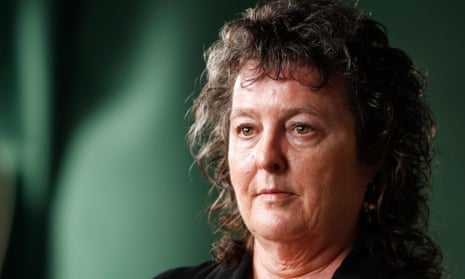On a seventh-century night in Northumbria, the Venerable Bede tells us, a lay brother and cattle herder named Caedmon had an extraordinary experience. Caedmon was not a literate man, and when social gatherings turned to song he would make his excuses and leave. On this night, when the harp came to him, he rose to tend the cattle and fell asleep in the stable. He dreamed that a man appeared. “Caedmon,” said the man, “Sing me a song.” But Caedmon did not know what he could possibly sing. “Sing about the creation of all things,” said the man. And Caedmon did, singing lines that he had never heard before; lines of such beauty, says Bede, that they moved the hearts of many to heaven.
“Nu scylun hergan,” Caedmon began. “Now we must praise … ” And poets have praised ever since.
Caedmon’s Hymn
Now we must praise to the skies, the Keeper of the
heavenly kingdom,
The might of the Measurer, all he has in mind,
The work of the Father of Glory, of all manner of marvel,
Our eternal Master, the main mover.
It was he who first summoned up, on our behalf,
Heaven as a roof, the holy Maker.
Then this middle-earth, the Watcher over humankind,
Our eternal Master, would later assign
The precinct of men, the Lord Almighty.
Caedmon translated by Paul Muldoon
In capturing “Caedmon’s Hymn”, Bede recorded the first poem to be written down on these islands. It is also the first poem in our new anthology, and its call to song – urging its author and reader to connect to the created world – is a call that echoes throughout the collection.
When I was invited to assemble an anthology to appear during my time as poet laureate, I imagined a poetry treasure hunt, using a map and a clock to travel, and time travel, these islands. As my ideal companion, I chose the Welsh poet Gillian Clarke. Our journey was one of shared enthusiasms, lone wanderings off the beaten track to forage, return and share, listening to the diverse sounds of poets, past and present, from England, Ireland, Scotland and Wales. “Be not afeard. The isle is full of noises.”
We chose not to present the book slavishly based on birth, composition or publication dates, but to favour a flow of readership and ideas, placing writers beside one another who might bring contrast, surprise or delight. We gathered poems into broad periods to give the reader a general guide to where they might find themselves in time. When we had finished, we had 12 sections to our clock, culminating with 60 living poets bringing as diverse and representative a range of voices as possible within the spirit of this journey.
The magical properties of our map and clock were not used to assert or reflect a British or Irish canon, but rather bestowed a freedom to tour and to celebrate the music, accents and fierce independence of poets from the earliest times to the 21st century – from those first words in Northumbrian Anglo-Saxon, to the newest by Zaffar Kunial, the final poem of our collection, whose verse comes from the West Midlands via Kashmir, and will be published in a debut next year.

“All manner of marvel” lay at our beginnings, an inclusive “us” awaited our end; from Anon to Zaffar, this was our personal journey through the creation of our islands’ rich poetries.
Us
If you ask me, us takes in undulations –
each wave in the sea, all insides compressed –
as if, from one coast, you could reach out to
the next; and maybe it’s a Midlands thing
but when I was young, us equally meant me,
says the one, ‘Oi, you, tell us where yer from’;
and the way supporters share the one fate –
I, being one, am Liverpool no less –
cresting the Mexican wave of we or us,
a shore-like state, two places at once, God
knows what’s in it; and, at opposite ends
my heart’s sunk at separations of us.
When it comes to us, colour me unsure.
Something in me, or it, has failed the course.
I’d love to think I could stretch to it – us –
but the waves therein are too wide for words.
I hope you get, here, where I’m coming from.
I hope you’re with me on this – between love
and loss – where I’d give myself away, stranded
as if the universe is a matter of one stress.
Us. I hope, from here on, I can say it
and though far-fetched, it won’t be too far wrong.
Zaffar Kunial

Comments (…)
Sign in or create your Guardian account to join the discussion